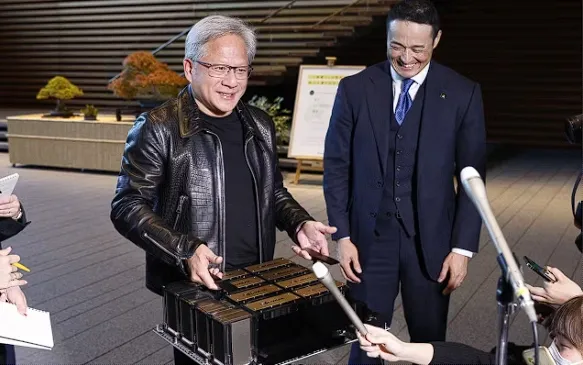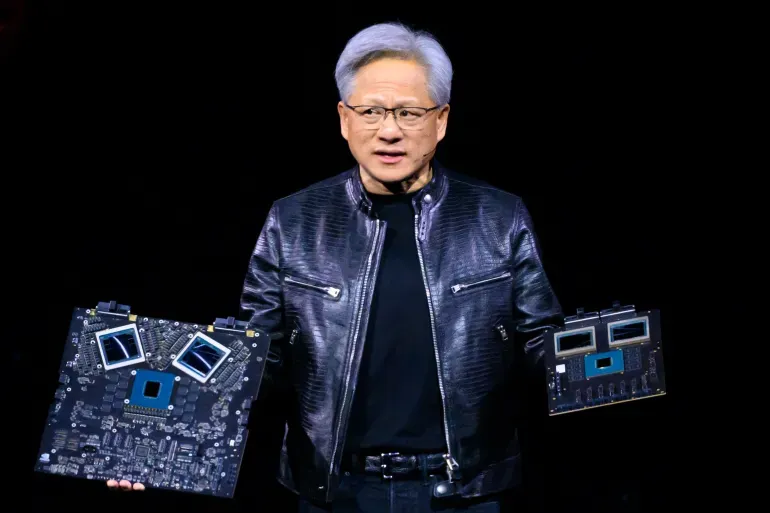In a significant move to support Japan’s burgeoning semiconductor and AI technology sectors, Nvidia CEO Jensen Huang announced on Monday that the company would make every effort to supply its highly coveted artificial intelligence processors to Japan.
This announcement comes at a crucial time as Japan endeavors to restore its once-dominant position in the global semiconductor industry and advance its AI capabilities. Nvidia's GPUs, which are integral to AI applications, currently dominate the market.
During a press conference held at Prime Minister Fumio Kishida’s official residence in Tokyo, Huang emphasized the importance of meeting Japan's needs despite the immense global demand.
"Demand is very high, but I promised the prime minister we will do our very, very best to prioritize Japan's requirements for GPUs," Huang told reporters, underscoring his commitment to supporting Japan’s tech ambitions.

Strategic Investments and Revitalization of Japan's Semiconductor Industry
Huang’s visit to Japan is particularly timely, taking place just two weeks after the country passed a supplementary budget that allocates approximately 2 trillion yen ($13.60 billion) for investment in the semiconductor industry.
This substantial financial injection is a key component of Japan’s strategic efforts to revitalize its semiconductor sector and develop state-of-the-art AI technology. A portion of these funds is expected to benefit Taiwanese chipmaker TSMC, as well as the chip foundry venture Rapidus, which aims to produce cutting-edge chips in Japan's northern island of Hokkaido.
"The semiconductor industry that Japan is now starting to grow and foster will be able to produce GPUs," Huang noted, reflecting Nvidia's recognition of Japan's potential to re-establish itself as a significant player in the global semiconductor arena.
He further emphasized the strategic importance of domestic production, stating, "Countries like Japan are realizing that you need to own your own data, build your own AI factories, and produce your own AI intelligence." These comments underscore the critical role of domestic capabilities in ensuring technological and economic sovereignty in the rapidly evolving global tech landscape.
A Strategic Partnership for Technological Advancement
Nvidia’s commitment to Japan is more than just a business decision; it represents a strategic partnership aimed at fostering innovation and growth within Japan's AI sector. As global competition in AI technology continues to intensify, Japan's efforts to rebuild its semiconductor infrastructure and enhance its AI capabilities are essential. Nvidia’s support is anticipated to be a key driver in these endeavors, helping Japan maintain its competitiveness on the global stage.

Huang’s pledge to prioritize Japan’s GPU needs signifies a deepening cooperation between Nvidia and Japan, potentially paving the way for future collaborations in AI and semiconductor technologies. As Japan makes substantial investments in its technological infrastructure, the collaboration with Nvidia could significantly accelerate its progress, ensuring that it remains a formidable competitor in the global market.
This partnership is set to benefit both Nvidia and Japan, with Nvidia expanding its influence within the Asian market and Japan gaining access to the latest AI technologies necessary for a wide range of applications, from autonomous vehicles to advanced robotics. The mutual advantages of this collaboration highlight the importance of strategic international partnerships in driving technological advancement and economic growth.
Footnote
Nvidia’s commitment to Japan exemplifies the increasing importance of strategic alliances in the tech industry. As nations around the world recognize the critical need to develop and maintain their own technological capabilities, partnerships like the one between Nvidia and Japan are likely to become more common. These collaborations not only foster innovation but also ensure that countries can compete effectively in an increasingly interconnected and competitive global economy.







